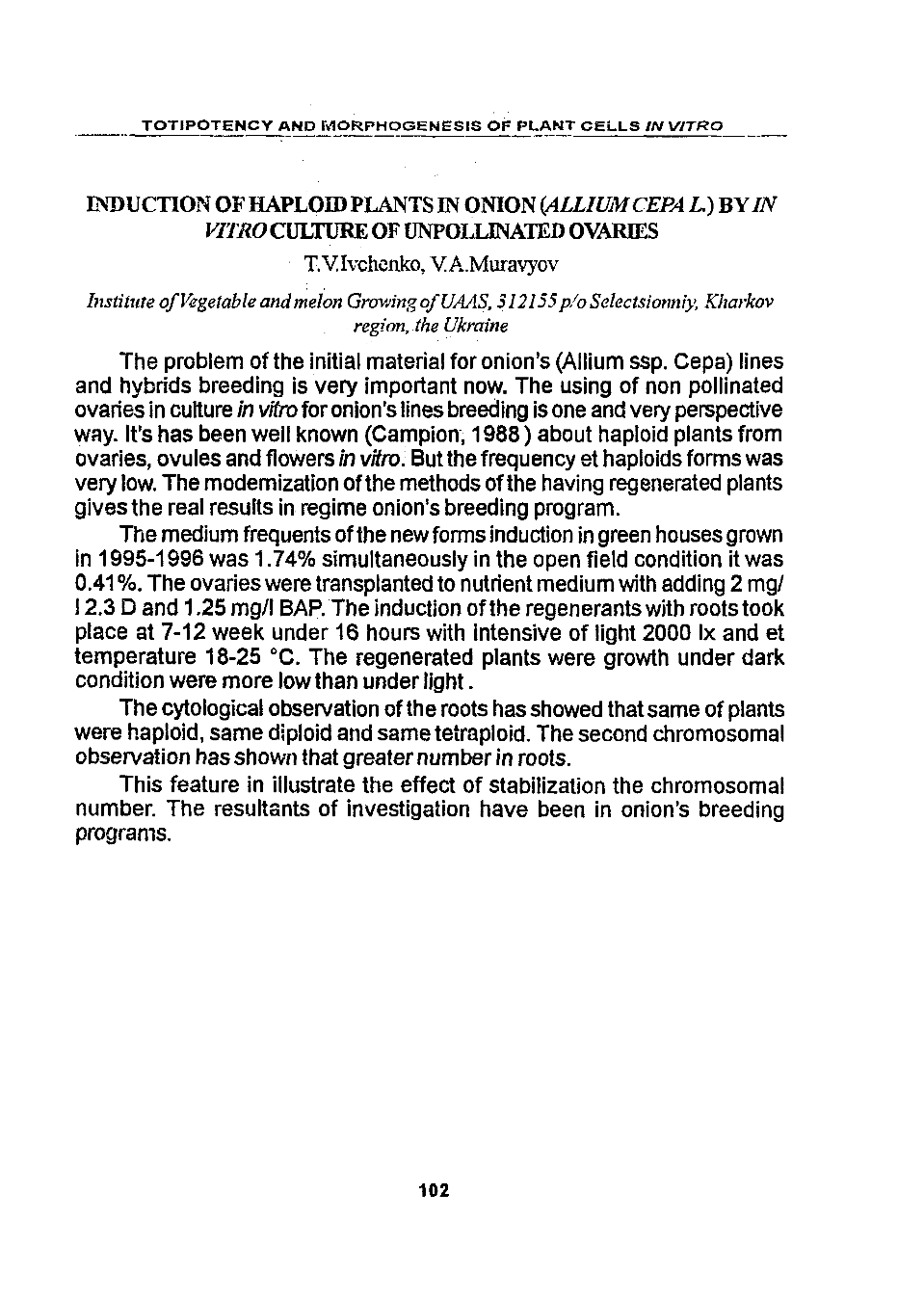

TO T IPO T EN CY AND M O R PH O G EN E SIS O F PLANT C E L L S
IN V IT R O
INDUCTION OF HAPLOID PLANTS IN ONION
(ALLIUMСЕРА L .)
BY
IN
VITRO
CULTURE OF UNPOLLINATED OVARIES
T.V.Ivchenko, V.A.Muravyov
Institute o f Vegetable andmelon Growingo fUAAS, 312155p/о Selectsionniy, Kharkov
region, the Ukraine
The problem of the initial material for onion’s (Allium ssp. Сера) lines
and hybrids breeding is very important now. The using of non pollinated
ovaries in culture
in vitro
for onion's lines breeding is one and very perspective
way. It’s has been well known (Campion, 1988) about haploid plants from
ovaries, ovules and flowers
in vitro.
But the frequency et haploids forms was
very low. The modernization of the methods of the having regenerated plants
gives the real results in regime onion's breeding program.
The medium frequents of the newforms induction in green houses grown
in 1995-1996 was 1.74% simultaneously in the open field condition it was
0.41 %. The ovaries were transplanted to nutrient medium with adding 2 mg/
12.3 D and 1.25 mg/l BAP. The induction of the regenerants with roots took
place at 7-12 week under 16 hours with intensive of light 2000 lx and et
temperature 18-25 °C. The regenerated plants were growth under dark
condition were more low than under lig h t.
The cytological observation of the roots has showed that same of plants
were haploid, same diploid and sametetraploid. The second chromosomal
observation has shown that greater number in roots.
This feature in illustrate the effect of stabilization the chromosomal
number. The resultants of investigation have been in onion’s breeding
programs.
102
Научная электронная библиотека ЦНСХБ









